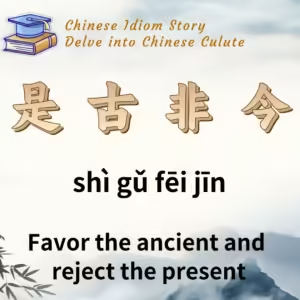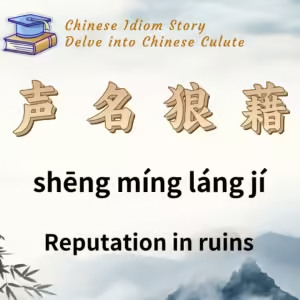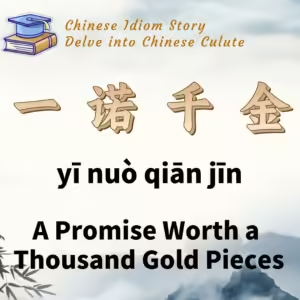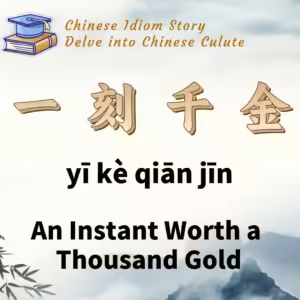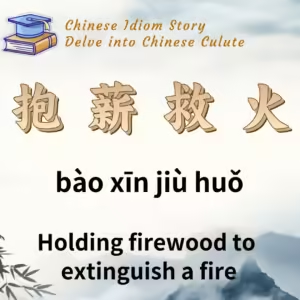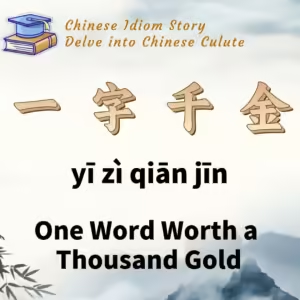
Chinese Idiom: 一字千金 (Yi Zi Qian Jin)
English Translation: One Word Worth a Thousand Gold
pīn yīn: yī zì qiān jīn
Idiom Meaning: This idiom describes a piece of writing, especially poetry or prose, that is highly valuable and exceptionally insightful.
Historical Source: “Records of the Grand Historian · Biography of Lü Buwei.”
Idiom Story: In 246 BCE, during the late Warring States period, various states were vying for power. Lü Buwei, a wealthy merchant from Puyang in the state of Wei (modern-day Henan), played a significant role in helping the father of Qin Shi Huang ascend to the throne, earning him the high position of chancellor. When Ying Zheng (the future Qin Shi Huang) became king, he appointed Lü Buwei as prime minister and honored him as “Zhongfu” (meaning second father).
At that time, it was common for the elite to support a large number of retainers. Lü Buwei had three thousand such retainers, many of whom were talented scholars. He ordered them to compile a book, later known as the “Lü’s Annals” (Lü Shi Chun Qiu), which collected various philosophical ideas and teachings.
To enhance his reputation and expand his influence, Lü Buwei decided to make the book public. He posted it on the city gate tower of Xianyang, the capital of Qin, and offered a significant reward. He proclaimed, “Anyone who can add or remove even a single word from this book will be rewarded with a thousand gold pieces” (in Qin times, twenty liang of copper was equivalent to one gold piece).
Intimidated by Lü Buwei’s power, no one dared to alter a single word. From this story, the idiom “One Word Worth a Thousand Gold” (一字千金) emerged, symbolizing the immense value of exceptionally well-crafted writing.

